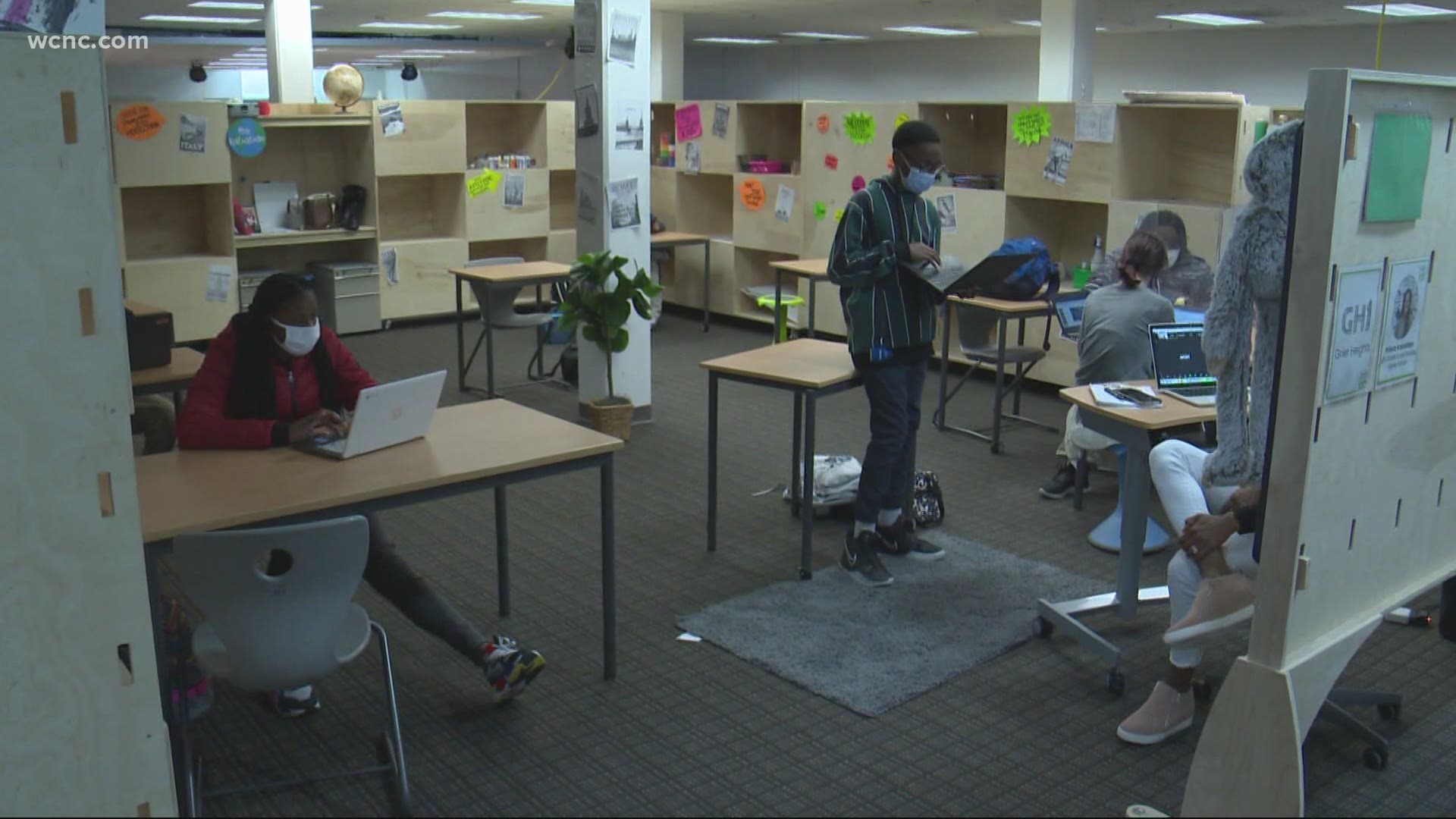CHARLOTTE, N.C. — As more and more children return to classrooms for in-person instruction, a Charlotte charter school has found ways to transform its space to help students adapt to a new learning environment.
“We’ve been able to use our physical space in different ways,” Mary Moss, who holds a doctorate in education and is the founder of the Charlotte Lab School, said.
Charlotte Lab School was already the kind of place where you would often find students learning on couches, in small pods, or atop rolling chairs.
“We are not a school where kids sit in rows and desks and that’s where they stay all day,” Moss said.
The school is a tuition-free charter with a newly added upper school on South Tryon Street.
Part of its DNA is to look at physical space as another teacher in the room, Moss said.
When it came time to adapt the educational spaces to meet the COVID-19 safety recommendations, Moss said they took the walls down, literally. The school converted eight classrooms into six larger rooms in an afternoon.
“Our school is set up much more like a modern workspace,” Moss said. “A lot of our furniture has wheels on it.”
The students were already accustomed to some level of reconfiguration, Moss explained. Teachers would often pull students into smaller groups, or allow them room to spread out and learn where they feel most comfortable.
That adaptability is the sort of out-of-the-box thinking Moss believes many schools or home learning environments could replicate.
“Create different spaces with different purposes within a classroom,” Moss suggested. “You can sort of create that sort of environment just within your classroom walls.”
In the two weeks since students returned to the upper school for in-person instruction, Moss said she has seen an immediate change.
“I’ve seen a big shift in just student engagement and excitement for being at school and appreciation for getting to go to school and for their teachers,” Moss said.
That excitement and a renewed level of engagement are things she and her fellow educators experienced as well.
“Our love for what we do comes from that interaction with kids every day,” Moss said. “The joy I’ve been able to feel of just seeing kids back in the building has made such a difference in how I see my job and how much I am enjoying working as an educator again.”
Moss said the return to in-person instruction also underscored the importance of the relationships formed between teachers and students.
Acknowledging the mental toll the pandemic has taken on so many of her students, Moss said they have tried to pay close attention to children’s needs. The students spend more time in their homeroom settings compared to a typical public school.
Moss said during that time, the class forms relationships and participates in team-building activities. That added time was valuable for teachers to form the trust needed to help identify which students may have challenges at home, Moss said.
That kind of care is something she hopes will carry through their school long after the pandemic is over.
“I think in many ways we all took it for granted, even our students, that they would always have school,” Moss said. “The pandemic may give us all a different perspective on education.”
Charlotte Lab School is still enrolling students through March 19. You can find more information about the school here.

